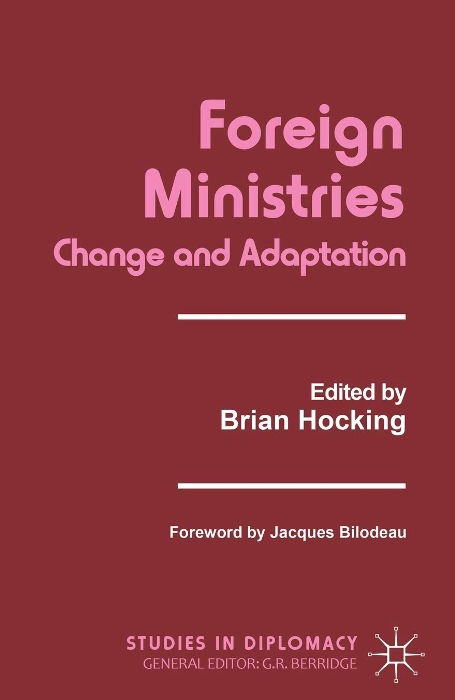Books
Brian Hocking
Foreign Ministries
Change and Adaptation
Foreign Ministries: Change and Adaptation, edited by Brian Hocking, is a timely exploration of how the machinery of diplomacy is evolving in response to a rapidly changing world. As globalization, technological advances, and shifting political landscapes challenge traditional diplomatic practices, this volume asks whether foreign ministries are truly “in decline” or simply adapting to new realities. Through comparative analysis and case studies, it reveals the enduring importance—and transformation—of these institutions at the heart of international relations.
This book brings together leading scholars to examine the changing roles and structures of foreign ministries in twelve countries, as well as their place within the European Union. The contributors assess how foreign ministries have responded to both domestic and international pressures, including the demands of globalization, the rise of new actors, and the need for more open and networked forms of diplomacy. Rather than accepting the conventional wisdom that foreign ministries are losing relevance, the volume demonstrates that they are actively redefining their functions—integrating economic and political roles, embracing digital communication, and developing new strategies for information gathering and negotiation.
The analysis highlights the crucial linkages between foreign policy and the mechanisms through which it is conducted. Chapters explore how ministries balance the need for rapid, transparent communication with the long-term perspective and discretion that diplomacy requires. The book also addresses the impact of supranational organizations like the EU, showing how foreign ministries must now coordinate not only with their own governments but also with a growing array of international partners and networks. By focusing on both challenges and innovations, the volume provides valuable insights into the ongoing adaptation of diplomatic institutions.
Foreign Ministries: Change and Adaptation is essential reading for anyone interested in the practice of diplomacy and the future of foreign policy-making in the post-Cold War era. Its comparative approach and attention to both theory and practice make it a key resource for students, scholars, and practitioners alike. The book’s central message is clear: while the context of diplomacy is changing, the need for skilled, adaptable foreign ministries remains as vital as ever.

